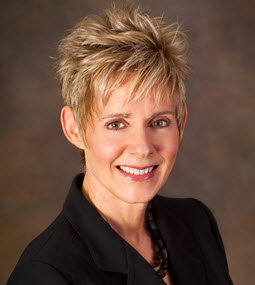

It’s a familiar quote, and ain’t that the truth?
I just completed my first full year on Medicare, and as a part of my annual Medicare wellness exam, I was provided multiple screenings that Medicare would pay for. The one test I was curious about was a cognitive test. The good news is that I passed. Phew! I didn’t know what to expect, and I thought I’d be in trouble when there were math questions. Luckily, the questions were related to understanding and tracking the money you spend.
Before the cognitive test, I was asked a series of questions, and at 66 years old, the line of questioning made me think, do I fit into an age group that needs help with daily tasks? I may not be a typical 66-year-old. I’m active, don’t suffer from aches and pains, don’t take any medications, and I’m in good health. Is this line of questioning the age at which people start to decline, or is it some artificial age picked by medical professionals? Regardless, the questions made me realize I’m doing a-okay! It’s also concerning that my age group may be declining in cognitive skills.
I haven’t always been kind to my body, and I’m thankful I figured things out sooner than later. I know people my age and younger who have osteoporosis, diabetes, high blood pressure, autoimmune issues, cancer, etc. I’ve been spared, and I’m grateful for my good health. My only complaint is a few symptoms related to menopause, and I’m doing my best to manage them daily.
So, what’s the secret sauce to staying healthy as we age? There’s not one thing that stands out for me, but rather many areas I work on.
- Keep a youthful mindset. It’s challenging to keep your head from thinking you’re “getting old.” But, you get exactly what you think about; if you think you’re older, then you are. Period.
- Keep moving! I admit I don’t move as much as I’d like. I do walk daily, but I also know that’s not enough. Weight-bearing exercises and stretching are ideal for keeping joints loose and blood flowing. In addition, many Medicare plans provide free memberships to your local gyms. Take advantage of them if you have access to them.
- You are what you eat. That’s an obvious statement and needs no explanation. If you’re not active and consuming high sugar and refined carbs, you’ll experience weight gain. Hormones regulate our metabolism, and food is either friend or foe in combating health and weight issues.
- Be an empowered patient. Get your annual medical screenings and ask for screenings above what many healthcare providers will order. Bloodwork will reveal a snapshot of what may be going on with you. I realize for many, it’s a matter of the additional costs of the tests that prevent many from asking, but what’s the cost of not knowing? Many fear the unknown and don’t want to know if anything is wrong. Catching things early could extend your quality of life. For some, it may be a simple lifestyle change. My husband was diagnosed with prostate cancer and luckily caught it early, and it has been clear for over a year. I can’t stress how essential screenings are.
- Be social. Interactions with others are healthy and comforting. One thing covid taught us is that growth doesn’t happen in isolation. We lost the human touch, eye contact, and smiles with everyone for too long. Interaction with others stimulates the brain to focus on what people are saying. Look at people in the eyes when they speak and listen intently. Eye contact is the window to the soul.
If you have limitations in your life, whether related to health, mental well-being, or finances, do what you can and make daily progress. We all can make a change, no matter how small.
Leave a Reply